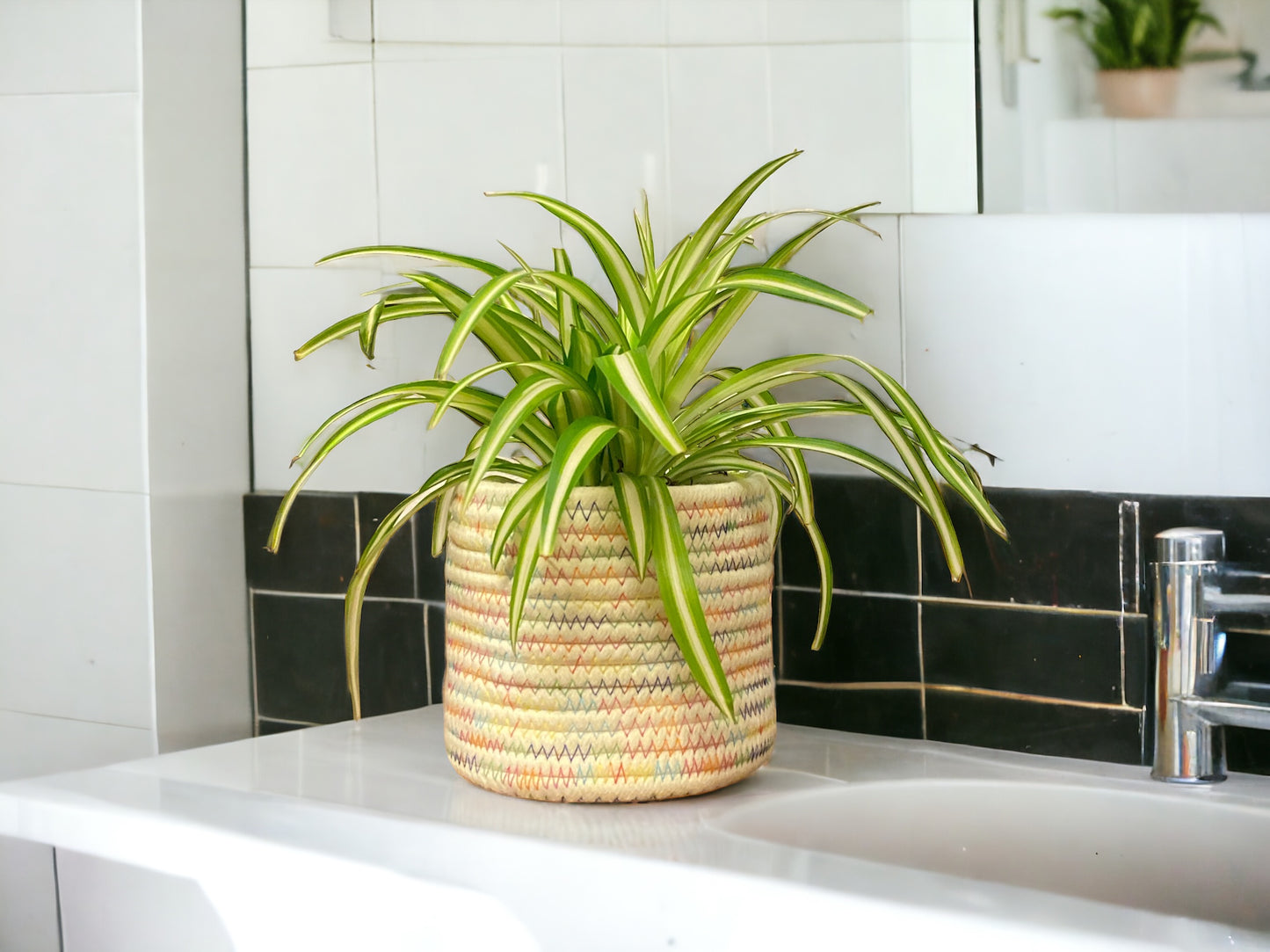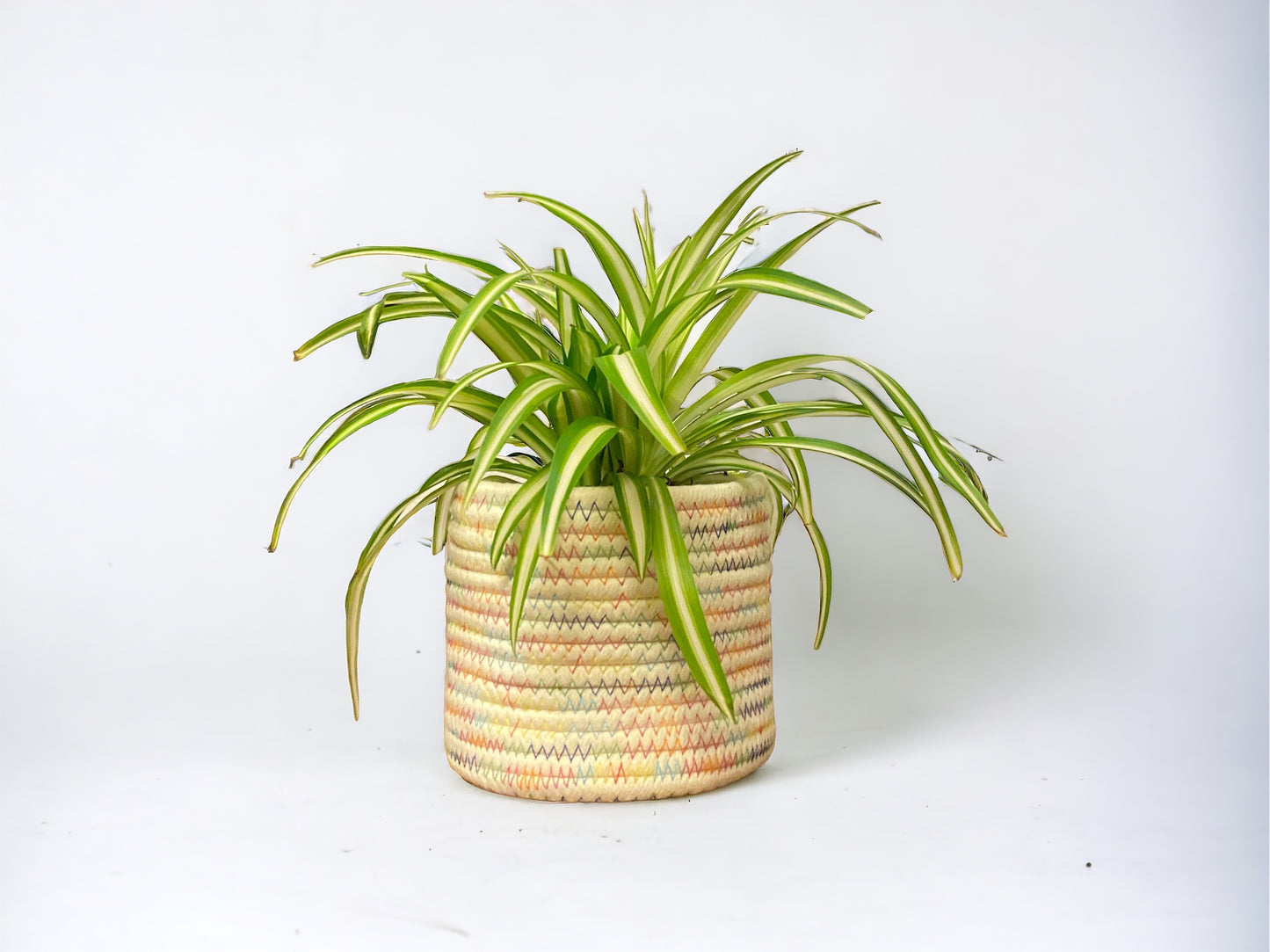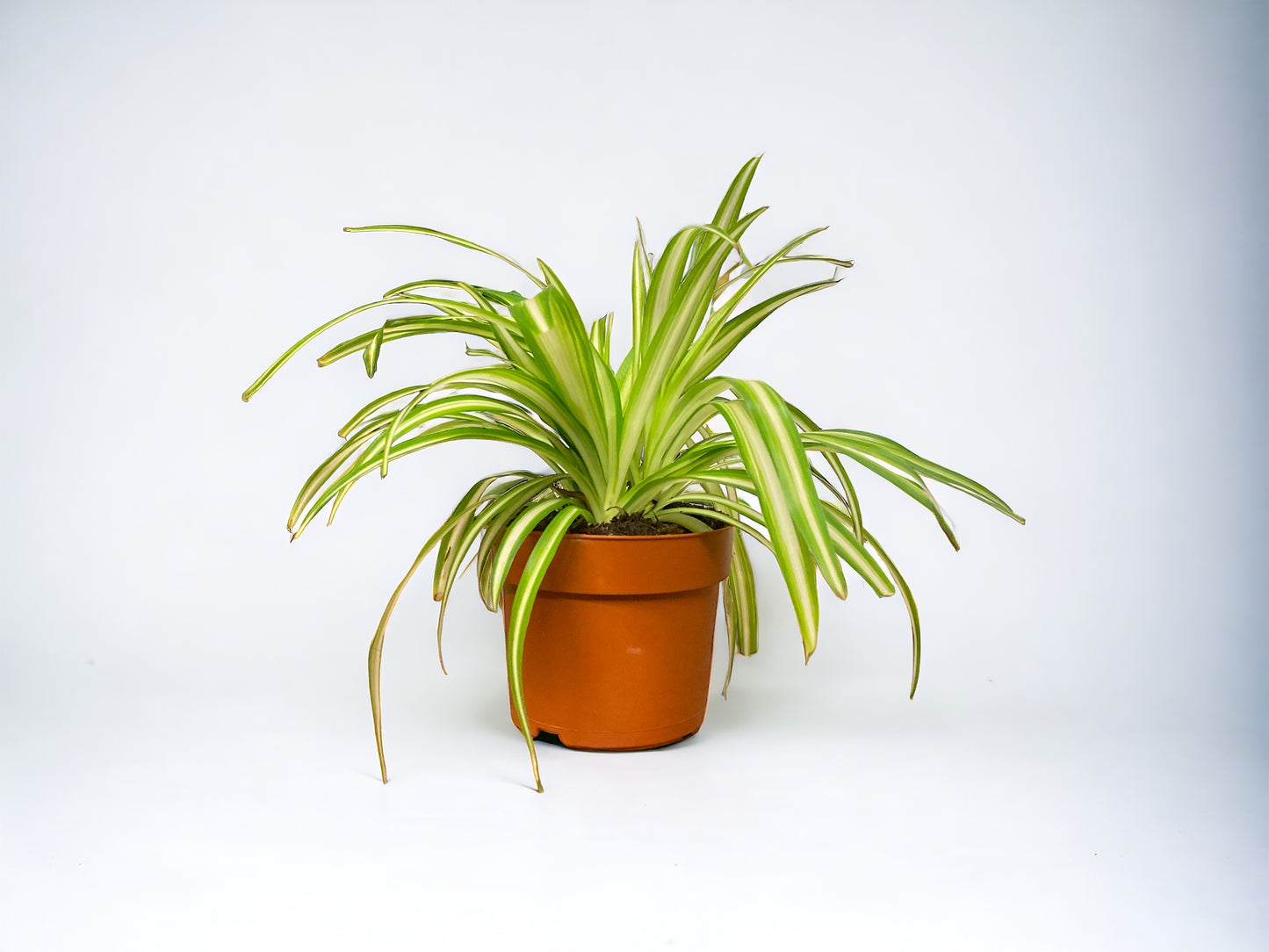Introducing the Spider Plant (Chlorophytum comosum), a charming and resilient houseplant known for its arching leaves adorned with spider-like offshoots, earning it the moniker "Spider Plant." With a graceful appearance and air-purifying abilities, this green companion is an ideal addition to any indoor environment.
Care Instructions:
Light:
- Thrives in indirect, bright light but can tolerate lower light conditions. Avoid direct sunlight, as it may scorch the leaves.
Watering:
- Keep the soil consistently moist but not waterlogged. Water your spider plant when the top inch of soil feels slightly dry. Regular watering is essential during the growing season.
Humidity:
- Adaptable to various humidity levels. Regular room humidity is generally sufficient, but occasional misting can benefit the plant, especially in dry indoor environments.
Soil:
- Use well-draining potting mix. Spider plants are not overly picky about soil, but they prefer a slightly acidic to neutral pH.
Temperature:
- Comfortable in normal room temperatures ranging from 60-75°F (15-24°C). Avoid extreme temperature fluctuations and drafts.
Fertilization:
- Feed with a balanced liquid fertilizer diluted to half-strength every 2-4 weeks during the growing season (spring and summer). Reduce or eliminate fertilization in fall and winter.
Pruning:
- Trim brown or yellow tips as needed. Remove any browning or spent baby spiderettes to encourage the plant's energy toward new growth.
Potting:
- Repot when the plant becomes root-bound, typically every 1-2 years. Use fresh potting soil and a container with drainage holes.
Pests:
- Spider plants are relatively resistant to pests. If issues arise, treat with insecticidal soap or neem oil. Check regularly for spider mites.
Propagation:
- Easily propagated by potting up spiderettes (baby plants) produced at the end of long arching stems. Simply place them in soil, and they'll develop into new plants.
Pets and Children:
- Non-toxic to pets but may cause mild stomach upset if ingested. Safe for children. Keep out of reach, and contact a veterinarian if consumption occurs.
By following these care instructions, your Spider Plant will not only survive but thrive, gracing your space with its unique charm and air-purifying benefits.





